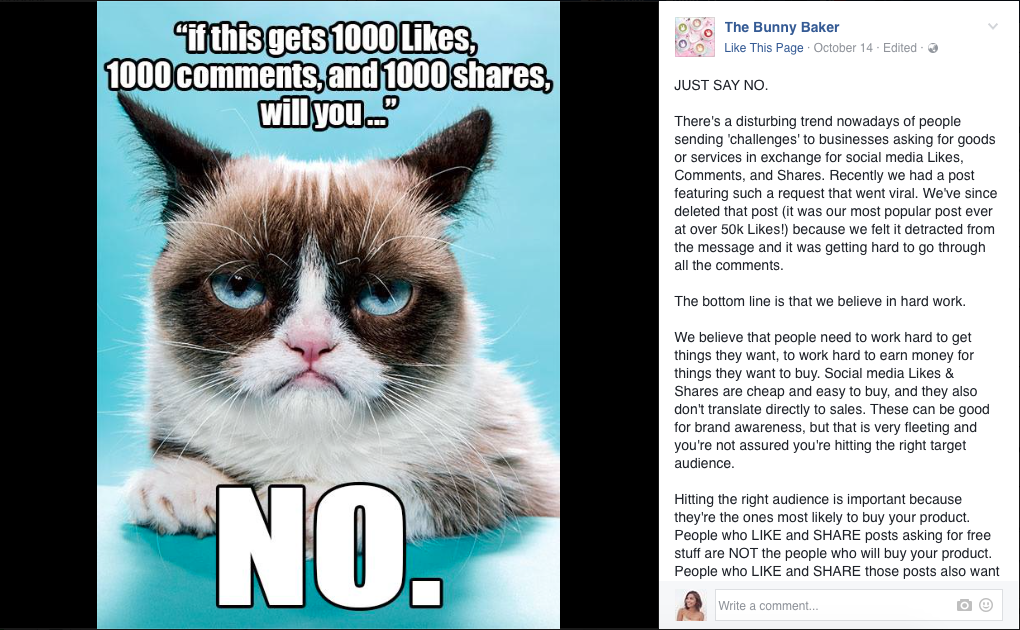“Hi, _________! If I get 100k likes, 100k shares, will you sponsor my _______?”
So goes yet another netizen on Facebook to some unwitting business — from major brands to mom-and-pop shops, they’ve all received this kind of message from people looking to get something for free in exchange of likes and shares on Facebook.

This trend, usually dubbed as “challenges”, started off innocently enough — people have long used gathering a certain number of likes and shares to engage in a dare, such as shaving one’s head off or growing a beard. Then came the trend of asking their crushes out to dates, with online “celebrities” usually at the receiving end of the proposal. Personalities such as Joyce Pring have agreed to these challenges, which normally end in a fun, wholesome little stunt.
The appeal is understandable. With millions of Filipinos on Facebook, gathering likes, shares and comments accesses a larger, untapped community who can relate to the challenge in some way or another. It’s like virtual bayanihan, where, on the other end, little effort is needed anyway; liking or sharing a post takes mere seconds.
Through time, however, this online fad shifted from funny dares and innocent declarations of love to unashamedly asking businesses for free stuff. The undeniable prevalence of these challenges — from requesting a bag to bargaining for a multimillion-peso car is therefore alarming. While for a netizen, sending these “harmless” challenges to businesses is just a means of pushing their luck (in short, nagbabakasakali lang), these are ultimately insulting to the businesses they contact.
There goes a poster that says, “By going local, you’re helping a little girl get dance lessons, a boy buy his team jersey, and a parent put food on the table.” Many of these businesses that rely on an active social media presence are main sources of income for families, which needn’t be said, have their own obligations to fulfill. Proceeds from a day’s sale of cupcakes is already enough to buy baby milk, and that’s not even counting the money the business owner had to invest in FIRST — from the purchase of baking tools, ingredients, and the like.
As reiterated by so many understandably irate business owners, likes, comments, and shares have no real monetary value. One hundred thousand likes won’t be paying this month’s rent. And no matter how much one thinks these challenges can rake in publicity for said businesses, one word needs to be taken into consideration: influence.
That is what sets bloggers, aka social media influencers, apart from people begging for products from these challenges. Bloggers hold influence over consumers to possibly buy a certain product featured on their blog or social media page, the same way celebrities are being hired to be brand ambassadors. Many famous bloggers have worked hard to gain not just followers, but even the credibility and sway that they enjoy today — many of them even having to pay for their own things they post on their blogs. Even if one blogger and one person can both rack up one hundred thousand likes, the difference is in whether a person can engage people to know more about their product, and not through mere publicity.
Want something? Work hard for it. Save up.
Thoughts on this? Let us know in the comments!




